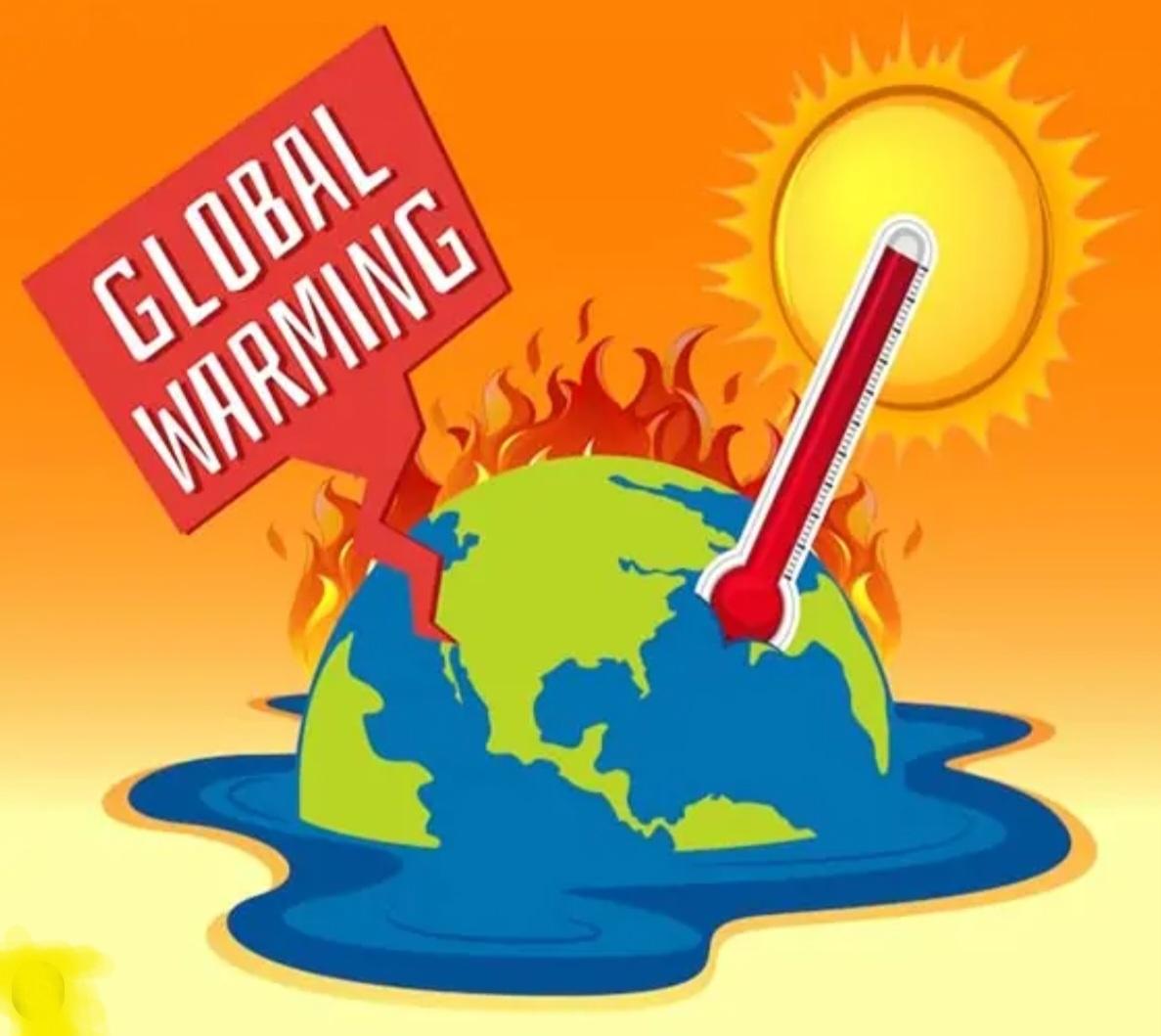Global warming is the gradual, long-term rise in Earth's average surface temperature, driven primarily by human activity that intensifies the planet's natural greenhouse effect. Though natural climate shifts have occurred throughout history, the current rate of warming is unprecedented over the last two millennia and is definitively linked to the human-caused increase of heat-trapping greenhouse gases in the atmosphere.
Causes of global warming
The core cause of modern global warming is the emission of greenhouse gases from human activities since the start of the Industrial Revolution. Burning fossil fuels: The combustion of coal, oil, and gas for electricity, heating, and transportation releases vast amounts of carbon dioxide CO2 and nitrous oxide into the atmosphere. The transportation sector and electricity generation are among the largest sources of these emissions.
Deforestation:
Forests act as natural carbon sinks, absorbing CO2 from the atmosphere. The clearing of forests for agriculture, livestock grazing, and other land uses releases the stored carbon back into the air, while simultaneously reducing the planet's capacity to absorb future emissions.
Industrial processes:
Manufacturing goods like cement, steel, electronics, and plastics requires large amounts of energy, which is predominantly generated by burning fossil fuels.
Agriculture:
Certain farming practices contribute to greenhouse gas emissions. For example, livestock like cows and sheep produce methane during digestion, and the use of nitrogen-rich fertilizers releases nitrous oxide.
Consumerism:
The production, transportation, and eventual disposal of consumer goods all contribute to greenhouse gas emissions. Landfills, for instance, release methane as organic waste decomposes. Effects and impacts The rising global temperature has a wide range of destructive and far-reaching effects on both the environment and human societies. Climate change and extreme weather: Warming temperatures disrupt normal weather patterns, leading to more frequent and intense extreme weather events, including heatwaves, droughts, floods, and powerful tropical storms.
Rising sea levels:
As temperatures rise, glaciers and ice sheets melt at an accelerated rate. The ocean also expands as it warms, causing sea levels to rise. This threatens coastal communities and island nations with flooding, erosion, and saltwater intrusion into freshwater sources.Ocean changes: Oceans absorb both heat and CO2, but this has severe consequences. Warming ocean waters disrupt marine ecosystems, while increased CO2 absorption leads to ocean acidification, which endangers marine life, particularly organisms that build shells, like coral.
Ecosystem and biodiversity loss:
Rapid climate shifts force many plant and animal species to adapt, migrate, or face extinction. Habitats are destroyed by wildfires and flooding, and natural cycles, such as the timing of flower blooms, are disrupted.
Threats to human health:
Climate change directly impacts human health through heat-related illnesses, poor air quality exacerbated by smog and wildfires, and the expansion of disease-carrying insect populations. Extreme weather events also cause injuries, death, and mental health crises.
Food and water scarcity:
Changes in precipitation and temperatures affect crop yields and livestock. Droughts lead to water shortages for drinking and irrigation, threatening food security and potentially displacing millions of people.

